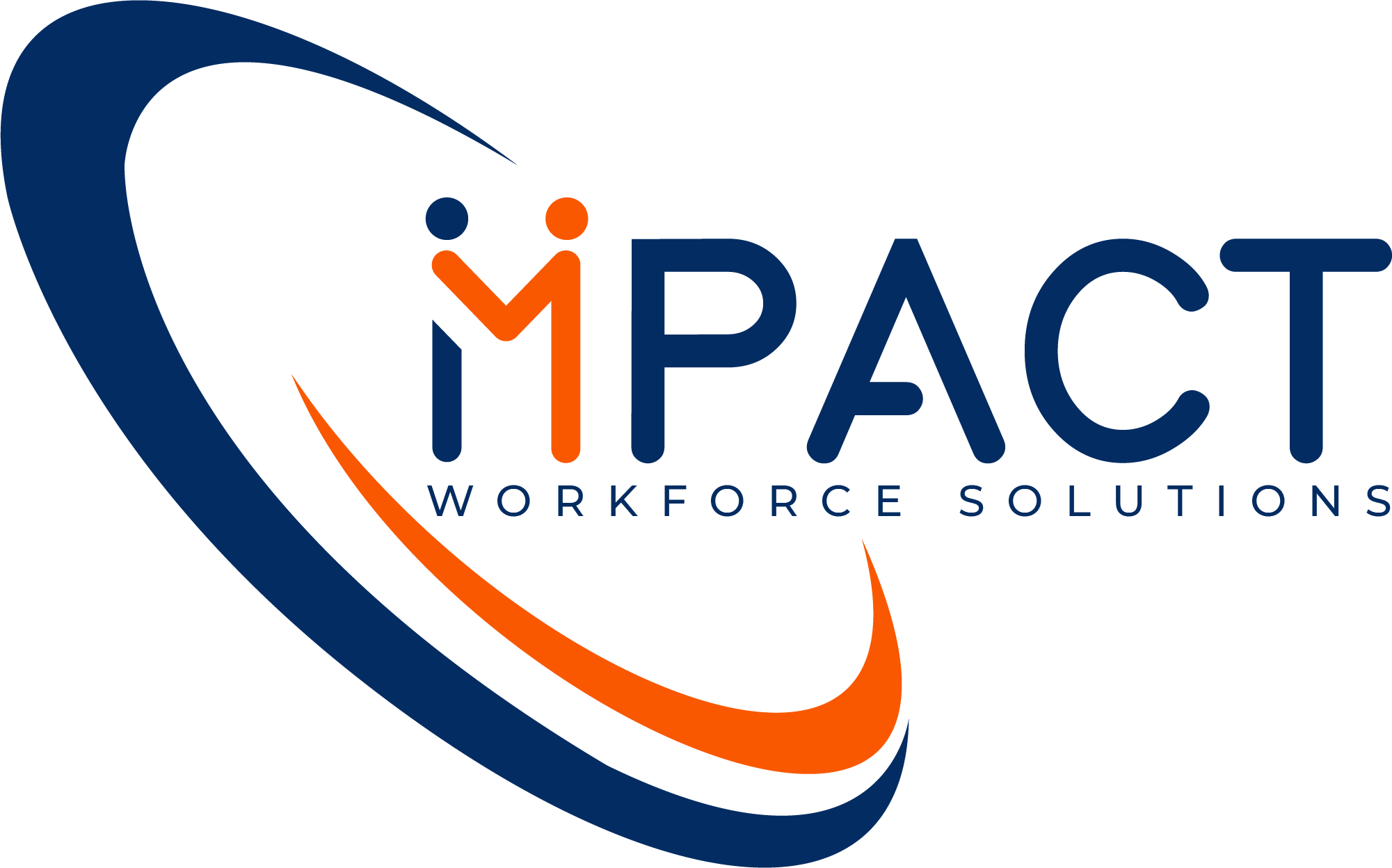
The workforce landscape continues to evolve in response to the ever-changing demands of modern businesses and the needs of employees. This year, a host of trends show how the experiences of the pandemic continue to reshape the way we work, hire, and manage talent.
From a heightened focus on employee engagement to the embrace of skill-based hiring, the workforce subject matter experts at Impact Workforce Solutions examined the trends influencing workforce management and the ways specialized solutions, like CWMaaS by Impact Workforce Solutions, can help navigate this increasingly dynamic environment.
Employee engagement and well-being
The COVID-19 pandemic highlighted the importance of work/life balance and job satisfaction. In the aftermath of the pandemic, employee engagement remains a management and organizational priority.
As a result, organizations are reevaluating their approach to improving job satisfaction, realizing that a healthy and happy workforce is fundamental to long-term success. Therefore, engagement strategies are prioritizing employee well-being and mental health by:
- Scheduling breaks: Encouraging employees to take regular breaks and recharge. Frequent short breaks can improve focus and productivity, while longer vacations can help reduce stress and prevent burnout.
- Offering mental health treatment: Providing access to mental health resources and treatment options, including counseling services, stress management programs, and employee assistance programs.
- Providing growth opportunities: Offering training and upskilling opportunities to help employees advance in their careers and to retain top talent.
One notable aspect of this trend is that it often extends beyond the core workforce to encompass contingent workers, as leaders increasingly see the value of fostering contingent workers’ loyalty and commitment while building long-term relationships with them.

Skill-based hiring
The exponential strides of technology continually disrupt industries and redefine job roles — and always will — making some skills increasingly important while others become obsolete. In response, many leading organizations are adopting skill-based hiring as a strategy for acquiring talent. This more flexible approach promotes necessary skills over traditional qualifications to access a larger pool of candidates.
The trend isn’t as simple as rewriting job postings. It typically includes:
- Removing the degree requirements for positions. Many organizations no longer require college degrees as prerequisites for employment. They understand that relevant skills and experience are often more effective in the role than formal education.
- Assessing candidates holistically to include work and personal experience. Along with technical skills, employers are looking at interpersonal and communication skills, recognizing the impact of those qualities on individual and team performance.
- Sourcing skilled contingent workers who can be hired without training. A shorter ramp-up period speeds productivity, improves diversity, and taps a broader talent pool with more areas of expertise.
Workforce flexibility
Flexibility has redefined the workplace, introducing concepts like flexible scheduling, remote work, and hybrid work arrangements. Now, flexibility is redefining workforce contingent staffing. The reliance on contingent workers such as freelancers and contract workers continues to grow across all industries for good reason, offering a range of advantages, such as:
- Agility, permitting organizations to quickly adjust their workforce size to accommodate fluctuations in project demand and ensure the right talent is available when needed
- Skills, as contingent workers’ specialized skills can close the in-house skills gap, enabling efficient project completion
- Expertise at a lower cost, as employing contingent workers gives organizations access to expertise without the major expenses associated with benefits and long-term contracts

Stay on trend with Impact Workforce Solutions
Today’s focus on employee engagement, skill-based hiring, and workforce flexibility are transforming how organizations operate and manage their talent.
Moreover, as the use of contingent workers grows, organizations are rethinking their contingent workforce management by turning to specialized suites like CWMaaS by Impact Workforce Solutions. Designed to address the unique requirements and concerns of contingent workers, these platforms play a critical role in helping organizations become more adaptable and agile, improving contingent workforce engagement, satisfaction, productivity, and retention.
